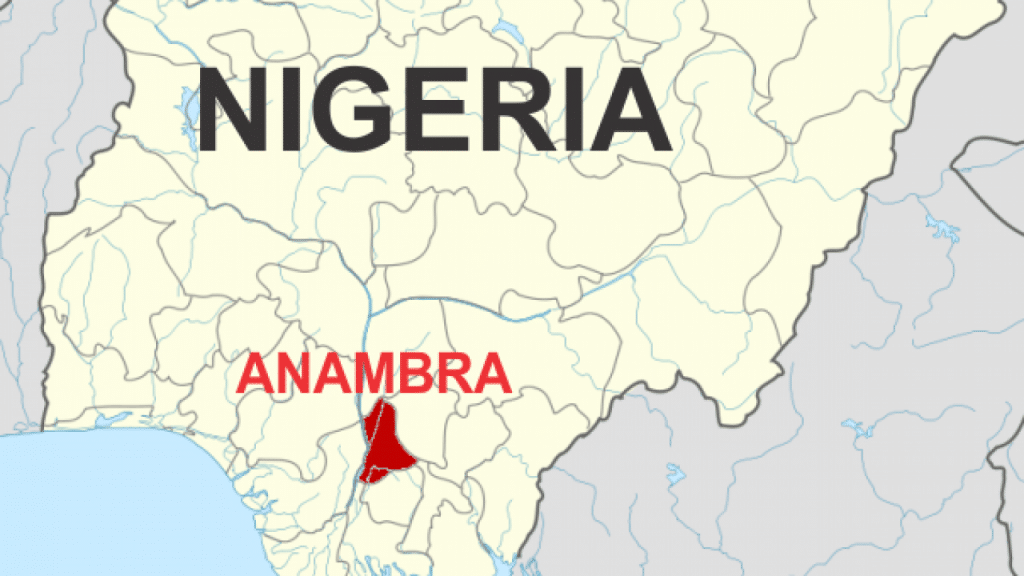Below in no particular order is a list of 6 Anambra families prominent in politics and business that have gone beyond the first generation, with visible family members and a strong social standing.

The Ojukwu Family:
The Ojukwu family needs no introduction. Simply mention the name Ojukwu in Nigeria and everyone knows what family you are referring to. The family fortune was built by the late Sir Louis Odumegwu Ojukwu KBE in the 30’s. Sir Louis was Nigeria’s first corporate titan and millionaire. He was the founder of Ojukwu Stores, Ojukwu Textiles and Ojukwu Transport (the first major transport company to move easterners to Lagos from Onitsha). He soon diversified his interests, investing in various companies and organisations across the country. At the peak of his success, Sir Louis was the first and founding President of the Nigerian Stock Exchange, President of the African Continental Bank, and Chairman of the Board of some of Nigeria’s most profitable companies such as Shell Oil Nigeria Ltd, Guinness Nig. Ltd, Nigerian National Shipping Lines, Nigerian Cement Factory, Nigerian Coal Corporation, Costain West Africa Ltd, and John Holt amongst others. In 1939, on the outbreak of World War 2, the British Government requested the use of Sir Ojukwu’s fleet of trucks for the War effort to which he agreed. When the war ended in 1945, the British Goverment recognised his sacrifice and he was awarded a KBE (Knight of the British Empire). A man of immense wealth and influence; in 1956 when the Queen visited Nigeria, the British authorities had to borrow his Rolls Royce and personal driver to chauffeur the Queen around. Sir Louis was also a financial pillar of Zik’s NCNC party and when the party came to power in 1960, Sir Louis was offered the position of Minister of Finance which he turned down, the position ultimately went to Okotie-Eboh.
Politically, he was the Chairman of the Eastern Nigerian Development Corporation (ENDC), the Eastern Regional Marketing Board, and a Member of the Federal House of Representatives. Despite his many achievements, His Oxford trained son Chukwuemeka Odumegwu Ojukwu (Ikemba of Nnewi), would rise to eclipse him in name and recognition, but not in wealth. Ikemba, who was the Military Governor of the Eastern Region in 1966, was the President of the breakaway Republic of Biafra during the Nigerian Civil War. In the twilight of his life, Ikemba was the founder and Party Leader of the All Progressive Grand Alliance (APGA), which at the time of his death in 2011 had secured control of two states in the south east. As a historical figure, Ikemba is considered one of the greatest and most prominent Igbo leaders, alongside the late great ‘Zik of Africa’. He was married to Ambassador Bianca Onoh (former Miss Nigeria and daughter of C.C. Onoh, the former Governor of Anambra State). The third generation is represented by his son Emeka Ojukwu Jr. (from a previous marriage) who was former Commissioner for Special Duties in Anambra, and Member of APGA’s Board of Trustees.

The Okeke-Ojiudu Family:
The Okeke-Ojiudu family is a political and business dynasty founded in the 1940’s by the late Chief P.N. Okeke-Ojiudu. Unlike most other prominent Igbo families, the Okeke-Ojiudu family survived the civil war with control over their structures and tightly knit family businesses. The patriarch Chief P.N. was a prominent politician, legislator, businessman and philanthropist; and was the influential Minister of Agriculture during the Nigerian First Republic. A successful businessman, P.N. transitioned into politics early in his career and joined the struggle for independence; As a young and rising legislator in the 50’s, P.N. was re-elected member of the Eastern House of Assembly with a massive vote of 67,000; second only to Nnamdi Azikiwe who polled 77,000 votes. A man of wisdom and refined taste, P.N. was intelligent, practical and handsome. Popularly known by his colleagues as a ‘Man with a Plan’, he was one of the most powerful figures in the former Eastern Region alongside M.I. Okpara and Zik. An equivalent to the Federal Ministry of Petroleum today, the Ministry of Agriculture was arguably the most important ministry in the government at the time. Under his direction, the Ministry bankrolled government projects, provided jobs, boosted food supply, and bolstered economic growth. A devout catholic and papal knight; his friends included Cardinal Francis Arinze and blessed father Michael Iwene Tansi – who was beatified by the Pope in 1998. The second generation of the family is represented by his sons Ambassador Dr Francis Okeke-Ojiudu, a medical doctor who became Nigeria’s first Ambassador to the Vatican City and Chief Tony Okeke-Ojiudu, a businessman who heads the family’s businesses. The family is still going strong into its third generation with business leaders, policy shapers and Ivy League graduates. Unique in its blend of family business and public service, the Okeke-Ojiudu family is one family that will definitely endure.

The Azikiwe Family:
Nnamdi Azikiwe was a legendary statesman, patriot, leader and political icon. He transcended national politics to become a global figure and is considered by many to be the father of post-independence Nigeria. As the first President of the Federal Republic of Nigeria, Azikiwe pushed for and oversaw the young Nation’s transition from colony to republic. In his early years, Azikiwe was a graduate of Howard University, USA, and the University of Pennsylvania, an Ivy League institution also located in the United States. Upon his return to Nigeria, Azikiwe founded the ‘West African Pilot’, a newspaper he used to promote Nigerian Nationalism. Along with the Pilot (Lagos), he started a string of newspapers in various cities across the nation under the ‘Zik Group of Newspapers’. Other papers under the group included: the Southern Nigerian Defender (Ibadan), the Eastern Nigerian Guardian (Port Harcourt), the Eastern Sentinel (Enugu), the Nigerian Spokesman (Onitsha), and the Daily Comet (Kano). After a successful journalism enterprise, Azikiwe entered active politics, co-founding the National Council of Nigeria and the Cameroons (NCNC) alongside Herbert Macaulay in 1944. He soon became; a Member of the Eastern House of Assembly, Premier of the Eastern Region, Governor General of Nigeria, and finally the first President of the Federal Republic of Nigeria. Although his group of newspapers no longer exists today, Azikiwe’s legacy lives on in his many children. His best known son was the late Chukwuma Azikiwe (the Owelle of Onitsha). Chukwuma, a graduate of Harvard University, was the oldest son of Zik and succeeded his father as the second Owelle of Onitsha. He ran unsuccessfully for Anambra Governor in 1991 under the Social Democratic Party (SDP). Another son, Emeka Azikiwe, was Nigeria’s Permanent Representative to the United Nations (from 1987-1993), and a Special Adviser on Anti-Corruption to President Olusegun Obasanjo; and a third son Uwakwe Azikiwe, is currently strong in Enugu State politics.

The Okigbo Family:
The Okigbo family came to national prominence with the emergence the Okigbo brothers, Pius and Christopher in the 1960’s. Pius, the older of the two was a world renowned economist, academic and administrator who served different administrations and the United Nations in various capacities. An erudite scholar, Pius was the first Economic Adviser to the government of the former Eastern Region of Nigeria (1960-1962), the first Economic Adviser to the Federal Government of Nigeria (1962-1967), and Nigeria’s first Ambassador to the European Economic Community (EU). In 1994, as Chairman of a committee to probe the activities of the Central Bank of Nigeria, he released a report critical of the government’s role in mismanaging 12.4 billion dollars of oil revenues. The report was popularly known as the ‘Okigbo Report’. His younger brother Christopher Okigbo, was an influential and enigmatic poet and author who died fighting for the independence of Biafra. Considered one of the greatest modernist writers of the 20th century, some of his works included; Silences (1962), Limits (1964), Lament of the Masks (1964), Dance of the Painted Maidens (1964), and his final highly prophetic sequence, Path of Thunder (1965–67), which was published posthumously in 1971 with his magnum opus, Labyrinths. Christopher was bosom friends with literary legend Chinua Achebe of whom he partnered with in the 60’s to establish a publishing house called Citadel Press. The second generation of the family is represented by Pius’s son Pius Okigbo Jr., Founder of InfoSoft Ltd and former President of the Institute of Software Practitioners of Nigeria (ISPON), and Christopher’s daughter Obiageli Okigbo, who established the Christopher Okigbo Foundation in 2005 to perpetuate her father’s legacy.

The Udoji Family:
Chief Jerome Udoji was a renowned government bureaucrat, technocrat, public administrator, businessman and philanthropist in the Nigerian First Republic. He was educated at Cambridge University in England and held the traditional title of Igwe of Ozubulu. During the Nigerian First Republic, Chief Jerome was Permanent Secretary to the Ministries of Commerce, Finance and Health. He soon rose to become the Head of Service in the former Eastern Region and Chief Secretary to the Premier of the Eastern Region, Dr. Michael Okpara. He was also Secretary to the Executive Council and served as the official constitutional Adviser to the Eastern Nigerian delegation to the Nigerian Constitutional Conference in London. A corporate giant, Jerome helped found the Nigerian Stock Exchange and served as its Chairman from 1981 to 1986. He was also Chairman or on the board of at least 13 major corporations in Nigeria including Citibank Nigeria and Nigerian Tobacco Company. A papal knight and philanthropist, the Udoji Award is named in his honour, as well as the newly built Anambra State Secretariat. His son Chief Oscar Udoji is a businessman and founder of the defunct Udoji United FC. He also served as the national Chairman for the Congress for Progressive Change (CPC), and founding member of the All Progressive Congress (APC).

The Ugochukwu Family:
Mathias Ugochukwu was a prominent industrialist, businessman and traditional ruler from Umunze, Anambra, who played a major role in large scale industrialisation and manufacturing in the Eastern Region. After engaging in various jobs as a youth including petty trading, he joined the police force in 1945. The turning point in his career came in 1951 when he won 50,000 pounds on the Irish Sweepstake. He soon left the police force for the business world. He first traded motor parts, and then built up a sizable transport company that was second only to Ojukwu Transport. He purchased shares in John Holt and his close association with the company soon lead to his appointment as Chairman. Mathias then diversified into imports (tobacco, textiles and food stuffs) and real estate, and became the Chairman of the African Development Corporation – an indigenous investment agency which had as its board members Louis Ojukwu, L.N. Obioha and C.T. Onyekwelu. Mathias also took up various regional and federal appointments including; the African Development Bank, National Railway Corporation, Nigerian Industrial Development Bank, the Stock Exchange, the Federal Tenders Board and the Eastern Nigerian Marketing Board. After the civil war, Mathias was the founder of Ugochukwu Chemical Industries which produces mattresses, pillows, cushions and sheeting. While he was never directly involved in politics, he nevertheless identified with political parties. He was a member of the NCNC in the First Republic and the National Party of Nigeria (NPN) in the Second Republic. His many children are all involved in business and a few have successfully tried their hands in politics, notable of which include; Nikky Ugochukwu, a Member of the Anambra State House of Assembly and Chinedu Ugochukwu, a former Member of the Federal House of Representatives.






